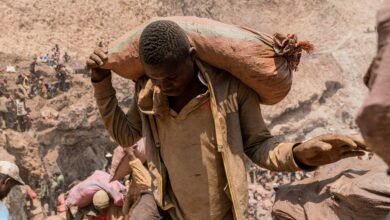Democracy Day and the State of the Nigerian Child: A Call to Action

On this Democracy Day, Nigeria celebrates 25 years of uninterrupted democratic governance. In his speech, President Bola Tinubu honored the heroes of democracy, emphasized the importance of democratic principles, and discussed the administration’s efforts to strengthen the economy and implement reforms, including a new minimum wage bill. However, there was a notable omission: the plight and future of Nigerian children were not mentioned.
The State of the Nigerian Child
The challenges facing Nigerian children are dire and demand urgent attention. According to the latest global data by UNESCO, Nigeria now has about 20 million out-of-school children. The National Bureau of Statistics (NBS) disclosed that 24.6 million children in Nigeria are engaged in child labor, with more than 20.1 million of these being young children aged 5-14 years. Furthermore, a five percent increase in violent cases against children was recorded between 2016 and 2021, as per the 2021 Multiple Indicator Cluster Survey by UNICEF.
Poverty remains a critical issue, with almost 83 million Nigerians living below the poverty line, as highlighted in the NBS’s 2019 Poverty and Inequality report. Additionally, UNICEF reports that 35 million children under five suffer from malnourishment, with 12 million experiencing stunted growth, 3 million wasting from excessive weight loss, and 23.5 million being anaemic. Despite efforts, the average reduction in stunting is only 1.4% per year.
A Call for Action
In the words of Nelson Mandela, “There can be no keener revelation of a society’s soul than the way in which it treats its children.” As Nigeria celebrates its democratic achievements, it is crucial to reflect on these sobering statistics and recognize that the true measure of progress lies in how we address the needs of our most vulnerable citizens—our children.
Democracy without development is unsustainable. The future of Nigeria hinges on the well-being and empowerment of its children. They are the leaders, innovators, and citizens of tomorrow. Investing in their education, health, and safety is not just a moral imperative; it is essential for the nation’s continued growth and stability.
Recommendations
- Government Initiatives: The government must prioritize policies that ensure access to quality education for all children, tackle child labor, and provide adequate healthcare and nutrition.
- Community Engagement: Communities must support initiatives that protect children’s rights and foster safe environments for them to thrive.
- Private Sector Participation: Businesses should invest in educational and health programs, supporting the development of a skilled and healthy workforce for the future.
- International Cooperation: Collaborating with international organizations can bring in the necessary expertise and resources to address these challenges comprehensively.
Conclusion
As we honor the sacrifices made for Nigeria’s democracy, let us also commit to safeguarding the future of our children. Their well-being is a reflection of our democratic values and the true essence of our nation’s soul. On this Democracy Day, let us pledge to empower every Nigerian child to excel, ensuring they have the opportunity to contribute to a prosperous and democratic Nigeria.
Source of Image: https://leadership.ng/





